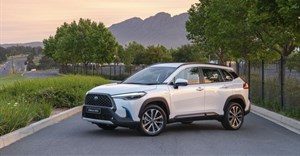
Subscribe & Follow
Jobs
- Sales Hunter Johannesburg
- Accounts Payable Supervisor Johannesburg
- 947 Junior Commercial Coordinator Johannesburg
- Kfm Programming Coordinator Cape Town
- Accounts Payable Controller Johannesburg
- Motion Graphics Designer Johannesburg
- Senior Graphic/Digital Designer Cape Town
- Art Director Cape Town
- Digital Marketing Learnership Cape Town
- Bobst Die Cutter and Carton Gluer Johannesburg
India's auto manufacturers go for green and compact
The on-going surge in fuel price is increasingly becoming a cause of concern for car manufacturers in India. The vehicle manufacturers are planning to build vehicles with smaller engines that will consume less fuel. The companies are also looking at adopting alternative fuel technologies. This move is essential for the vehicle manufacturers to stay competitive in India's budget conscious market.
The continued northward journey of oil prices has compelled the Indian automobile manufacturers to produce vehicles with smaller engines that would consume less fuel. In addition, the auto manufacturers in India look to introduce alternative fuel vehicles in the near future. Companies like Tata Motors have already announced a plan to introduce a petrol-electric hybrid version of Indica. Mahindra and Mahindra has already unveiled a diesel-electric hybrid version of Scorpio. The country's largest passenger carmaker, Maruti-Suzuki, is set to launch an LPG (liquid petroleum gas) version of its popular model M800. Even premium segment players like Mercedes Benz have recently started importing their CNG cars into the Indian cities.
Big opportunities in mini market
Tata Nano has already set the race to conquer the super mini segment in the country. Foreign auto manufacturers like Hyundai, Renault-Nissan are also set to roll out their offerings in the same segment, which is set to intensify competition in the super-mini segment. Foreign manufacturers are all set to seize the opportunity in the alternative fuel vehicles' space in India. Hyundai is extending its alternative fuel vehicle technology in all its product offerings.
With the problem of increasing traffic congestion in metropolitan cities like Delhi and Mumbai, it makes more sense for the manufacturers to produce more compact and fuel-efficient cars. In order to create commercial viability of non-conventional fuel-based cars, the manufacturers must liaise with the government authorities. The vehicle manufacturers must ensure that officials are fully aware of the benefits of the new technology and must imbue in the policy makers the enthusiasm and need to establish a network of fuel stations for such vehicles; otherwise, the saleability of such vehicles will face a question mark.
Auto manufacturers have in India have taken a wise step in addressing the need for fuel-efficient and alternative fuel vehicles. With India already being a price conscious market, the initiatives taken by the auto manufacturers in India, at a time when fuel costs are a concern, are nothing but imperative. In addition, as a result, increasing competition will spur innovation amongst these players to develop new and improved technologies at an affordable cost, which is indispensable for their sustenance in the industry.
About Saurabh Jain and Manish Khurana
This report's authors, Saurabh Jain and Manish Khurana, are automotive analysts at Datamonitor, a leading UK-based research company.















